Learning reimagined
Cultivating innovation and collaboration by creating spaces where academics can discover, develop and explore new ideas.
Explore
For students
For staff
Popular links
New and returning students
Wellbeing, Inclusion and Culture
Transforming Education
Degrees of Ownership: Empowering Our Graduates

We put our students at the heart of the learning experience, empowering them to enjoy an education that is active and participatory. Most importantly, our approach is powering the drive for innovation and adaptability across the curriculum, ensuring all students can succeed whatever their individual needs.
As a result of the pandemic, in planning for the 20/21 academic year we set out to transform our entire course portfolio for online engagement in a way that would enhance student learning, have lasting value and provide meaningful support to academics during a challenging time.
The sheer size of the challenge demanded creation of digital learning support for academics at scale. However, we had complete confidence in the change agency and ability of our students.
So our solution was to create a “home grown” team via Project Enhance, employing and training 69 recent graduates and 119 current students as Digital Learning Developers (DLDs) and Digital Learning Assistants (DLAs) respectively.
These teams were embedded across all 43 academic departments to provide tailored advice and assistance. That began with a crash course in digital pedagogy, giving them an opportunity to experience, first-hand, the platforms and tools they would be supporting academic staff to use.
Three of our DLAs have documented the journey in an educational blog which highlights the role digital learning can play in improving the HE experience.
The entire team was consummately professional, enabling an impressively integrated and efficient service despite working from home and never meeting each other or their academic colleagues in person.
The project successfully moved modules online in challenging timescales, enabled by the team’s capability to share invaluable digital expertise, troubleshoot queries, source solutions and facilitate both asynchronous and synchronous learning experiences. The team also acted as a bridge between student and staff perspectives on what constitutes engaging module design, using that insight to create accessible and inclusive learning experiences.
The overarching ambition was also to do all of the above in a way that would be accessible to all students, regardless of location, bandwidth and individual learning needs.
Notably, the team has also:
The process gave DLDs and DLAs a formative and authentic employment experience and supported our strategic goal of helping students transition into careers from university. Educators also benefited from increased opportunities to incorporate the student voice and work directly with them as co-creators of the curriculum.
Students have commented favourably on the online learning provision, praising the variety of resources, clear structuring of modules, helpful guidance, interactive elements and a good balance between activities and reading or listening to information.
The DLD role has have now been embedded into the institutional structure on a more permanent basis. So not only were we able to meet digital learning objectives in the pandemic period, but we’ve also created lasting benefits for our student partners and our entire university community.
The DLDs have also supported work outside of their main remit, such as assisting with decolonisation initiatives, providing technical support for virtual field trips, and contributing to successful funding bids to support pedagogical research.